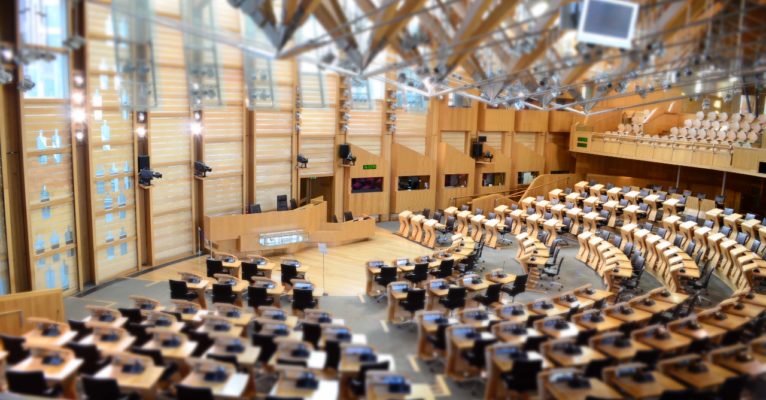Who’s in charge here? Brexit, devolution and environmental governance

During the Brexit referendum campaign the cry of “take back control” was often heard but never followed up by clear discussion of where the control was to be taken back to. The European Union (Withdrawal) Bill has served only to intensify the arguments over whether power returned from Brussels transfers just to London or also to Edinburgh, Cardiff and Belfast. Does the Bill represent a “power grab” by London or is it simply the natural product of existing arrangements? Not only is this an important issue in its own right, but pending its resolution, it seems that little progress can be made on developing the mechanisms for collaboration and co-ordination between the different levels of government which are widely accepted as essential to ensure proper environmental governance in the future.
Different Viewpoints
Many areas currently governed by EU law are ones which are reserved to Westminster. After all, the issues that are regulated to create the Single Market within the EU are also regulated to provide a single market within the UK, e.g. free movement, aspects of employment law, product standards. But other areas where the EU has been active, notably the environment, are ones where powers are devolved. At this point, though, we appear to face a deep disagreement between Edinburgh and London on what is the proper view of the extent of the devolution of powers.
The London approach is that although the loose talk is of powers on the environment or fisheries, agriculture, etc., being devolved, this is not the case. The extent of power transferred to and enjoyed by Holyrood is circumscribed by EU competences and activities, so that what was transferred was not power over environmental law, but only over those areas of environmental law not regulated by EU law. It follows, therefore, that in providing that any powers held in Brussels revert (initially at least) to London, the Bill does not make any change to the extent of power enjoyed in Edinburgh; the Scottish authorities will enjoy exactly as much freedom of action as at present. Indeed by envisioning competences subsequently being passed on to the devolved authorities, the Bill is actually opening the way to an extension of their powers.
The view from Edinburgh is different. This is that in areas not reserved to London under the devolution legislation, the default position is that all power rests with the devolved authorities. The fact that elements of that power are to some extent subservient to the EU at present does not alter the starting point that all matters not explicitly reserved are properly regarded as belonging in Edinburgh. Accepting the supremacy of EU rules, representing wider consensus and made by very distinct procedures, is something quite different from direct control from Westminster. The evaporation of the EU layer should mean that all non-reserved powers are devolved and the proposal in the Bill that they should be exercisable in London alone (unless and until London agrees to pass them on) is seen as a power grab diminishing devolved competences.
Models for Collaboration
At the time of writing there is no easy answer to this dispute and it threatens to overwhelm the more detailed and technical work of planning for a post-Brexit environmental future within the UK. Whatever the eventual constitutional resolution, a considerable degree of co-ordination and collaboration across the UK is going to be necessary on environmental matters. A wholly fragmented system is clearly undesirable because of the of inter-connectedness of our physical environment, the business needs of industry in terms of internal and external trade and the need (especially in the face of continuing austerity) to avoid wasteful duplication of effort. The question thus arises of what form the collaboration should take.
Inevitably the answer to that question does depend on the constitutional issue since that will determine were the final say on any issue, and the technical power to legislate, will lie. Nevertheless, given that environmental matters cannot be isolated and inevitably straddle reserved, devolved and (in due course, formerly) EU issues, wherever these boundaries are drawn, thought should be given to the new arrangements.
The Scotland Acts already allow for some mechanisms for working together:
- Concurrent powers: This is the position in relation to the implementation of EU law, where legislative powers can be exercised by Ministers in either London or Edinburgh (Scotland Act 1998, s.57; see also the Scotland Act 1998 (Concurrent Functions) Order 1999, SI 1999/1592).
- Jointly exercised powers: In a limited range of circumstances, e.g. in relation to some statutory bodies, it is provided that powers are to be exercised jointly by UK and Scottish Ministers (Scotland Act 1998, s.56(3)).
- Executive devolution: It is possible for UK Ministers to give Scottish Ministers the power to act in certain areas within reserved powers, without altering the fundamental reserved/devolved boundary. The powers may be exercisable by Scottish Ministers alone, by them with the consent of or after consultation with UK Ministers, or concurrently (Scotland Act 1998, s.63).
- Agency agreements: Either set of Ministers can provide that powers within their competence (other than powers to make subordinate legislation) can be exercised by the other, but responsibility remains with the original authority (Scotland Act 1998, s.93).
- Legislative consent: The devolution settlement did not diminish Westminster’s ultimate power to legislate on any matter its chooses (Scotland Act 1998 s.28(7)) but this is tempered by the process of legislative consent or “Sewel motions”, whereby approval from the Scottish Parliament is normally obtained before such legislation is made (Scotland Act 1998, s.27(8)). As was made clear in the Miller case (R (Miller) v Sec. of State for Exiting the European Union [2017] UKSC 5), this does not provide a legal obstacle to legislation by the UK Parliament, but does provide a vehicle for encouraging co-operation.
- Other models also exist. The Joint Ministerial Council is supposed to provide a forum for discussion and agreement between the various administrations in the UK. As a recent House of Lords inquiry concluded, this is not working effectively at present, but a re-vitalised structure might be appropriate. (House of Lords European Union Committee, Brexit: Devolution (4th report of 2017-19, HL 9)).
An alternative is the establishment of separate, technical bodies which can bring together representatives of the various statutory bodies across the UK to discuss particular topics and make recommendations, which are then left to be implemented by the competent legislative authorities. An existing example is the Joint Nature Conservation Committee (Natural Environment and Rural Communities Act 2006, s.34 and Sched 4), which as well as providing advice and recommendations, e.g. on the lists of plants and animals to be given legal protection, is charged with establishing common standards across the UK for the monitoring of and research into nature conservation and the analysis of resulting information.
Goodwill and Scrutiny
Beyond these, various formal or informal arrangements for consultation and sharing information can be imagined. There are, however, two besetting problems which may stand in the way. The first is that just as strong co-operation can work regardless of the structural arrangements when there is goodwill on all sides, no formal structure can work effectively in its absence, and the current constitutional dispute appears to be standing in the way of mutual goodwill.
The second is that the discussions over the Bill have highlighted the question of parliamentary scrutiny. If new forms of joint working are to be created, there is a question over how such activities are going to be overseen. At present the legislative consent process at Holyrood gives the Scottish Parliament a say when primary legislation is to be made at Westminster within a devolved area, but there is no process at all for the Parliament to be informed, far less to intervene, when it is decided that delegated legislation on devolved matters is to be made in Whitehall rather than Victoria Quay (most commonly to implement EU law). There are gaps that may need to be filled. Moreover, if there is to be effective joint working between the administrations, should there also be joint working between the Parliaments? Is there potential for joint commissions established by all four elected bodies to scrutinise the operation of whatever collaborative arrangements are put in place?
Official statements about the Brexit negotiations frequently call for an “imaginative and flexible” approach, and this will have to be shown in relation to structures within the UK itself. Now is the time to exercise our imaginations so that once the big constitutional question is resolved work can progress quickly. No definitive answers can be found at present, but if some thinking is done on models and options, the next stage can proceed more smoothly. As with so many matters arising from Brexit, concern over the big issues should not overwhelm the more detailed work that needs to be done to establish an environmental governance system that balances collaboration and differentiation and ensures adequate scrutiny of important matters.
About the author
This blog post was originally published as an article in the UK Environmental Law Association (UKELA) journal e-law. Colin Reid is Professor of Environmental Law at the University of Dundee. He is a member of UKELA’s Brexit Task Force and of an ESRC-funded project examining the re-politicisation of environmental law in the light of Brexit, as part of the UK in a Changing Europe programme.




